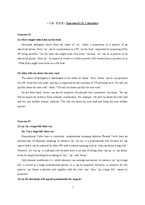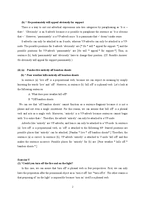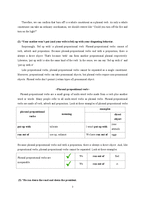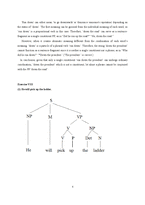고등영문법-Exercises of Ch. 2 Structure
Exercise III
(1) Mary might seem keen on the boat.
(3) John will run down the new road.
Exercise IV
(1) (a) Up a huge hill John ran
(b) *Up a huge bill John ran
(3) (a) He obviously will appeal passionately for support
(b) * He passionately will appeal obviously for support
(4) (a) Pandas live entirely off bamboo shoots
(b) * Poor weather kills entirely off bamboo shoots
Exercise V
(1) *Could you turn off the fire and on the light?
(2) *Your mother won’t put (and your wife is fed) up with your disgusting behavior.
(3) *He ran down the road and down the president.
Exercise VIII
(1) He will pick up the ladder.
(1) *Could you turn off the fire and on the light?
In this case, we can assure that 'turn off' is phrasal verb in few perspectives. First, we can only have the preposition after the pronominal object as in ‘turn it off’ but ‘*turn off it’. The other reason is that preposing of ‘on the light’ is impossible because ‘turn on’ itself is a phrasal verb.
Therefore, we can confirm that 'turn off' is a whole constituent as a phrasal verb. As only a whole constituent can take an ordinary coordination, we should rewrite like “Could you turn off the fire and turn on the light?”
(2) *Your mother won’t put (and your wife is fed) up with your disgusting behavior.
Surprisingly, 'fed up with' is phrasal-prepositional verb. Phrasal-prepositional verbs consist of verb, adverb and preposition. Because phrasal-prepositional verbs end with a preposition, there is always a direct object. That's because 'with' can form another prepositional phrasal respectively. Likewise, 'put up with' is also the same kind of the verb. In the sense, we can say ‘fed up with it’ and ‘put up with it’.
Like prepositional verbs, phrasal-prepositional verbs cannot be separated as a single constituent. Moreover, prepositional verbs can take pronominal objects, but phrasal verbs require non-pronominal objects. Phrasal verbs don’t permit (certain types of) pronominal object.
Phrasal-prepositional verbs are a small group of multi-word verbs made from a verb plus another word or words. Many people refer to all multi-word verbs as phrasal verbs. Phrasal-prepositional verbs are made of verb, adverb and preposition. Look at these examples of phrasal-prepositional verbs:
phrasal-prepositional verbs meaning examples
direct object
put up with tolerate I won't put up with your attitude.
run out of use up, exhaust We have run out of eggs.
Because phrasal-prepositional verbs end with a preposition, there is always a direct object. And, like prepositional verbs, phrasal-prepositional verbs cannot be separated. Look at these examples:
Phrasal-prepositional verbs are inseparable. We ran out of fuel.
We ran out of it.
(3) *He ran down the road and down the president.
'Run down' can either mean ‘to go downwards' or 'denounce someone's reputation' depending on the status of ‘down’. The first meaning can be guessed from the individual meaning of each word, so ‘run down’ is a prepositional verb in this case. Therefore, ‘down the road’ can serve as a sentence-fragment as a single constituent PP, as in “Did he run up the road?” “No, down the road.”
However, when it creates idiomatic meaning different from the combination of each word’s meaning, ‘down’ is a particle of a phrasal verb ‘run down’. Therefore, the string ‘down the president’ cannot function as a sentence-fragment







 분야
분야


